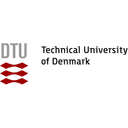Master bacterial genome analysis using next-generation sequencing tools. Learn species identification, typing, and resistance gene detection.
Master bacterial genome analysis using next-generation sequencing tools. Learn species identification, typing, and resistance gene detection.
This comprehensive course covers whole genome sequencing (WGS) of bacterial genomes and its applications in medical research and surveillance. Students learn about next-generation sequencing technology, bioinformatic tools, and data analysis methods. The curriculum includes practical demonstrations of online tools for species identification, typing, antimicrobial resistance detection, and phylogenetic analysis. Through hands-on exercises, learners master the use of freely available WGS analysis tools for bacterial genome characterization and surveillance.
4.6
(1,496 ratings)
61,077 already enrolled
Instructors:
English
پښتو, বাংলা, اردو, 4 more
What you'll learn
Apply genomic tools for bacterial subtyping and surveillance
Understand next-generation sequencing principles and data analysis
Master species identification and MLST typing methods
Detect antimicrobial resistance genes in bacterial genomes
Construct and interpret phylogenetic trees
Use integrated bacterial analysis pipelines
Skills you'll gain
This course includes:
3 Hours PreRecorded video
5 quizzes, 1 assignment
Access on Mobile, Tablet, Desktop
FullTime access
Shareable certificate
Get a Completion Certificate
Share your certificate with prospective employers and your professional network on LinkedIn.
Created by
Provided by

Top companies offer this course to their employees
Top companies provide this course to enhance their employees' skills, ensuring they excel in handling complex projects and drive organizational success.





There are 5 modules in this course
This course provides comprehensive training in whole genome sequencing of bacterial genomes and its practical applications. Through five structured modules, students learn about next-generation sequencing technology, bioinformatic analysis tools, and their applications in bacterial surveillance. The curriculum covers species identification, MLST typing, resistance gene detection, and phylogenetic analysis, combining theoretical knowledge with hands-on practice using freely available online tools.
Module 1
Module 1 · 1 Hours to complete
Module 2
Module 2 · 1 Hours to complete
Module 3
Module 3 · 1 Hours to complete
Module 4
Module 4 · 1 Hours to complete
Module 5
Module 5 · 1 Hours to complete
Fee Structure
Payment options
Financial Aid
Instructors
Expert in Antimicrobial Resistance and Veterinary Microbiology
Lina Cavaco is a distinguished veterinarian and researcher specializing in antimicrobial resistance and veterinary microbiology. She holds a DVM and a PhD in antimicrobial resistance from the University of Copenhagen, complemented by a Master's degree in Veterinary Public Health. With nearly 20 years of experience, Cavaco has made significant contributions to veterinary diagnostics, research, and education, focusing on antimicrobial susceptibility testing. Currently, she works at Statens Serum Institute, where her research encompasses monitoring and addressing antimicrobial resistance in bacterial diseases. Cavaco is also an educator, offering courses on antimicrobial resistance through platforms like Coursera, where she shares her expertise with students and professionals interested in this critical area of public health. Her work not only advances scientific understanding but also plays a vital role in developing strategies to combat the growing challenge of antimicrobial resistance globally.
Postdoctoral Researcher at Technical University of Denmark
Dr. Pimlapas Leekitcharoenphon is a bioinformatician and postdoctoral researcher at the Technical University of Denmark (DTU), specializing in whole genome sequencing (WGS) typing and epidemiology. Her research focuses on the short- and long-term evolution of bacterial genomes, particularly foodborne pathogens, and their population structures. Notable achievements in her career include evaluating the use of WGS for sub-typing and outbreak detection of Salmonella enterica, discovering a virulent fragment unique to S. Typhimurium ST313 and S. Dublin, and studying the global epidemiology of S. Typhimurium DT104. Dr. Leekitcharoenphon is actively involved in applying WGS to food safety and public health, particularly concerning antimicrobial resistance, and currently works within the EU Reference Laboratory for Antimicrobial Resistance. She has facilitated eight international bioinformatics training courses focused on WGS data analysis for detecting foodborne pathogens and has co-supervised four PhD students in genomic epidemiology. With 24 peer-reviewed publications, including eight as the first author, her work has significantly contributed to the field, with her research appearing in high-ranking journals such as PNAS.
Testimonials
Testimonials and success stories are a testament to the quality of this program and its impact on your career and learning journey. Be the first to help others make an informed decision by sharing your review of the course.
Frequently asked questions
Below are some of the most commonly asked questions about this course. We aim to provide clear and concise answers to help you better understand the course content, structure, and any other relevant information. If you have any additional questions or if your question is not listed here, please don't hesitate to reach out to our support team for further assistance.





